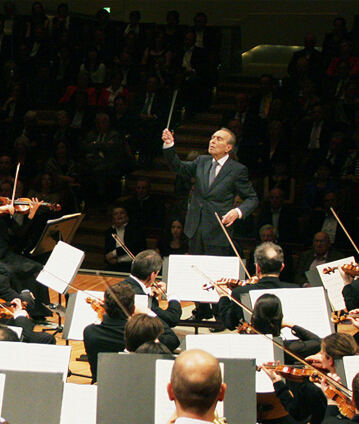Interview
Konstantia Gourzi évoque son travail avec Claudio Abbado Le dernier concert de Claudio Abbado avec les Berliner Philharmoniker

En mai 2013, pour son ultime concert avec les Berliner Philharmoniker, Claudio Abbado a présenté deux visions orchestrales on ne peut plus différentes : la musique de scène suprêmement équilibrée de Mendelssohn pour le Songe d’une nuit d’été et les outrances de la Symphonie fantastique de Berlioz – un programme qui illustre idéalement la richesse et la diversité du romantisme musical.
Berliner Philharmoniker
Claudio Abbado
© 2013 Berlin Phil Media GmbH
Interviews liées au concert
Interview
La « Symphonie fantastique » de Berlioz : une leçon d’organologie avec Philipp Bohnen Artistes
Nos suggestions
- Claudio Abbado conducts music inspired by the Prometheus myth
- Claudio Abbado conducts famous final movements at the 1999 New Year’s Eve Concert
- Claudio Abbado conducts Mahler’s Seventh Symphony
- Concert avec Claudio Abbado pour le centenaire de la mort de Gustav Mahler
- Claudio Abbado conducts Schubert, Debussy and Mahler
- Claudio Abbado conducts Russian works at Suntory Hall in Tokyo